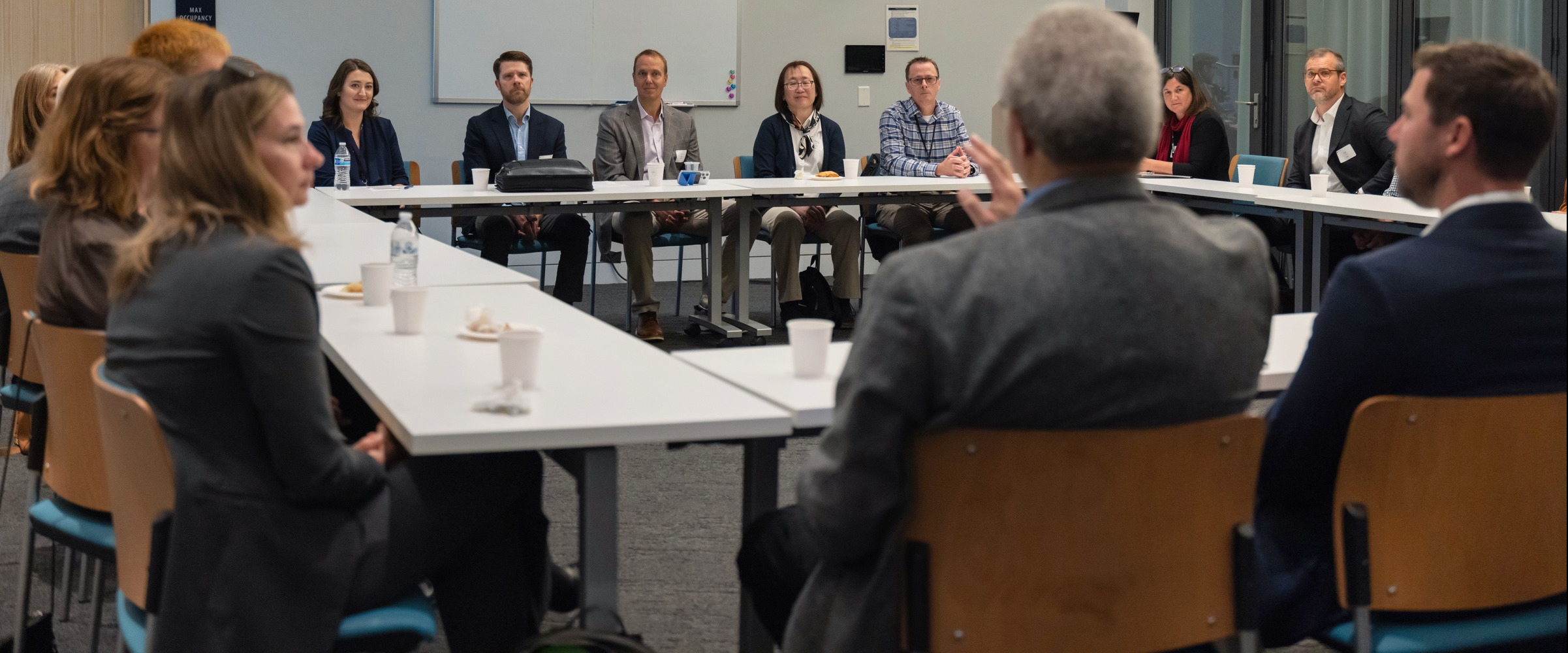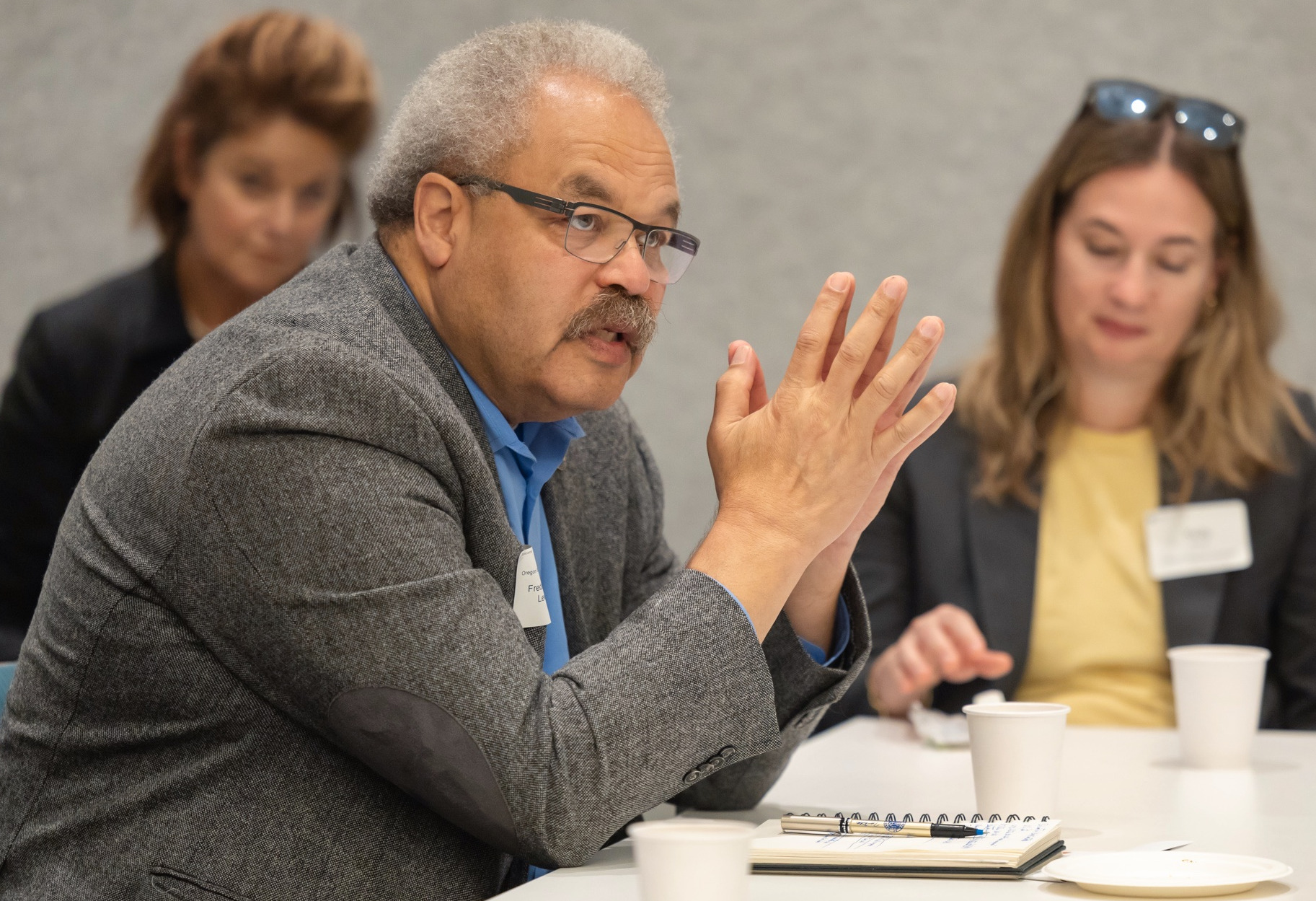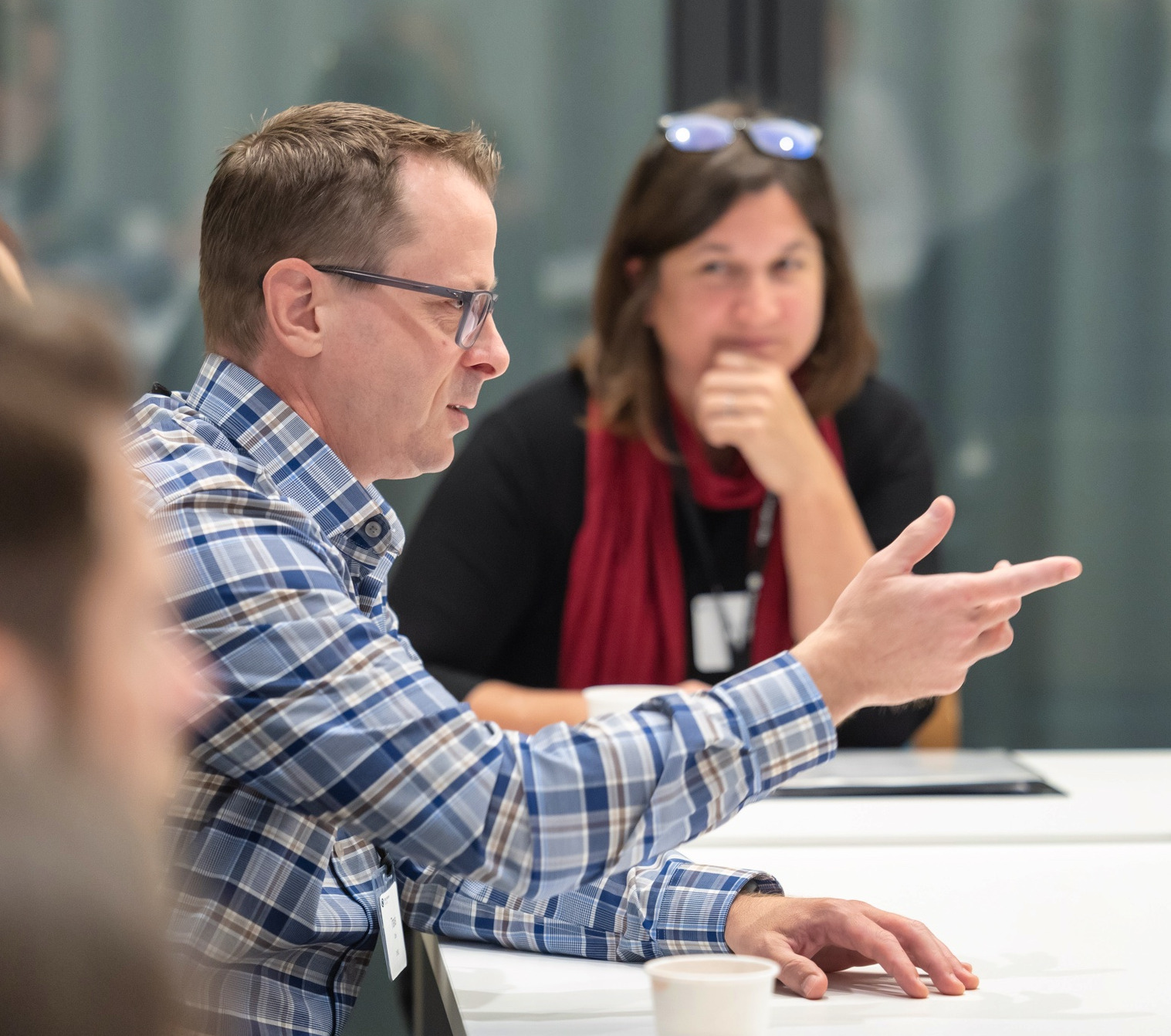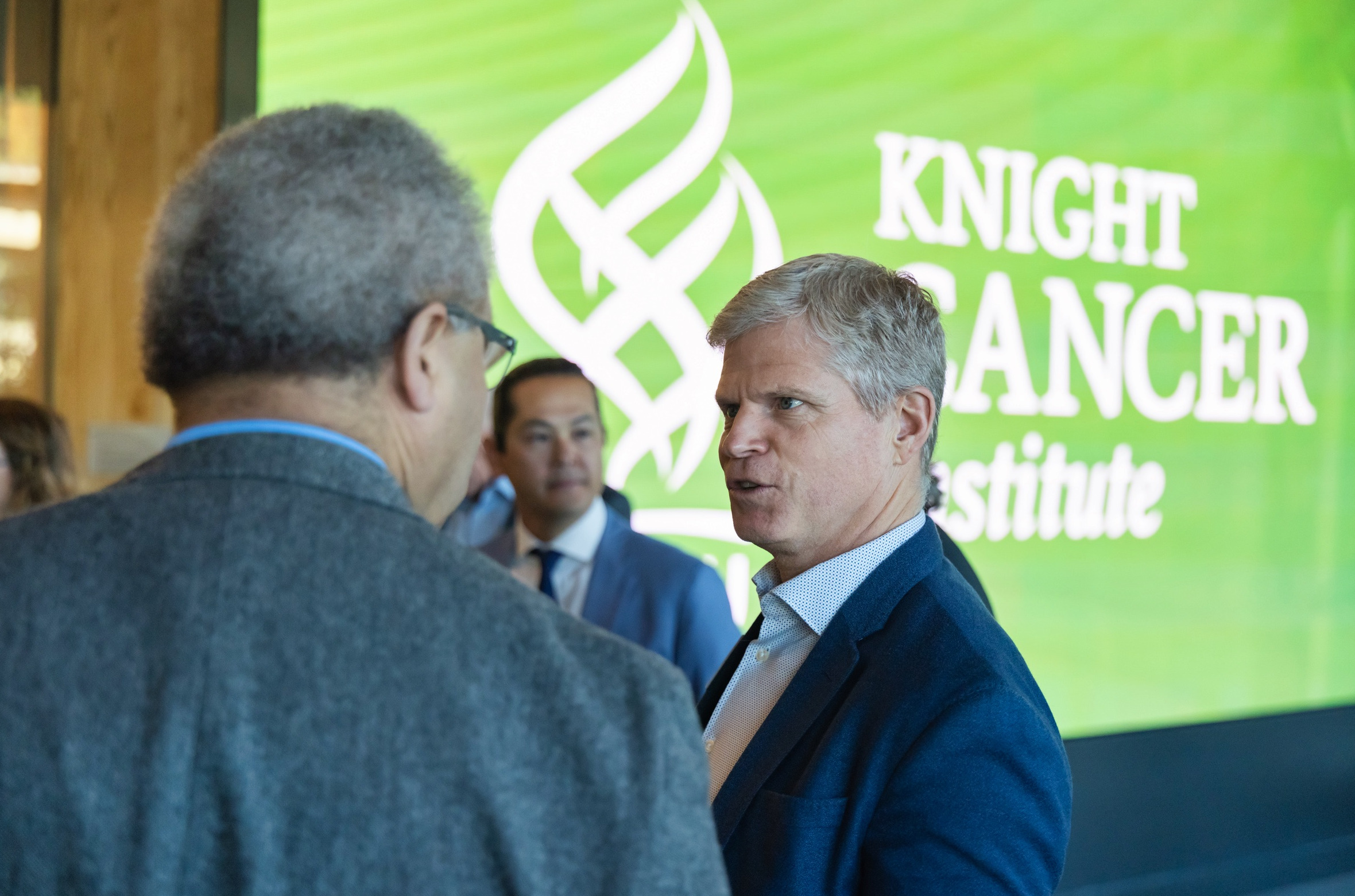Legislative/Leadership Breakfast Gathering Focuses on Regional Bioscience Opportunities
The Legislative/Leadership Breakfast
The 2024 Biotech Summit kicked off with a VIP policy forum and breakfast attended by regional lawmakers, policy experts, the Oregon Governor’s team, innovators, biotech business leaders and industry advancement experts from the international Biotechnology Innovation Organization and board of directors from the Oregon Biosc ience Association on Oct. 1.
ience Association on Oct. 1.
Convening to engage and address the present and future growth of the bio industry on a regional level, leaders also considered how to expand STEM education opportunities with high schoolers, and how to engage parents to encourage stem conversations at home, as well as industry issues of access and partnerships on the horizon.
Robust discussion and agreement revealed how the private and public sector can join hands to advance STEM and the industry overall. Noted Oregon Bio board member and Senior Director of Tech Transfer at Oregon Health & Science University Travis G. Cook, “The state legislature can spur biotech within our region by educating and informing the public about the science, applications and issues of biotechnology. They must focus on strengthening the research capabilities of the state's universities and providing resources to drive innovation and entrepreneurship to spinout startup companies built on their research discoveries.”
 Oregon state Senator Lew Frederick (D- District 22), one of several lawmakers to attend, reflected on his drive as an elected leader to ‘build our economic vitality and security,’ and ‘increase economic opportunities.’ During the morning tour of OHSU’s Knight Cancer Center, he shared what observations he had about the leadership breakfast and tour.
Oregon state Senator Lew Frederick (D- District 22), one of several lawmakers to attend, reflected on his drive as an elected leader to ‘build our economic vitality and security,’ and ‘increase economic opportunities.’ During the morning tour of OHSU’s Knight Cancer Center, he shared what observations he had about the leadership breakfast and tour.
“It was humbling to face the incredible growth of knowledge and technology since I last attempted to work on the bench and it was exciting to see how much has been accomplished and the direction we’re going.”
Key discussion points of the Legislative/Leadership Breakfast and roundtable included how Oregon Bio is engaging in policy development and making currently and beyond; how access to innovation is crucial and may be negatively impacted in Oregon including biomarker testing, newborn screening, vaccine financing and availability, and drug pricing regulation.
OHSU’s Cook also noted, “It is important that the state establishes a system to promote and resource collaborations among government, industry and academia to make Oregon competitive with other states in securing large federal grants such as made available under CHIPS Act to create multifaceted industry sector hubs. T o fully develop the sector, the state should consider aiding biotechnology business development, increasing access to equity capital, building out critical infrastructure to support wet labs and other regional resources supporting our companies supply chain and logistics to attract anchor companies like Genentech and Twist Bioscience who have come to the region, and finally, commencing a bona fide research and development tax credit to extend the runway for our regional biotech startups.”
o fully develop the sector, the state should consider aiding biotechnology business development, increasing access to equity capital, building out critical infrastructure to support wet labs and other regional resources supporting our companies supply chain and logistics to attract anchor companies like Genentech and Twist Bioscience who have come to the region, and finally, commencing a bona fide research and development tax credit to extend the runway for our regional biotech startups.”
Sen. Frederick also added, “What struck me most were two things. Number one, the incredible range of issues and concerns addressed by the genetic research underway, along with the link to a huge economic impact on jobs/businesses, and products already available. And number two, the fact that the general public has little to no idea that these things are already taking place in their backyard, down the street, in their community.”
Following this 90-minute, participatory and fruitful (and sometimes futuristic) conversation, tours of the OHSU Knight Cancer Institute launched, with thanks to Ph.D. researchers/biomedical engineers Benjamin Kingston and Sean Hamilton. Participants visited the science ‘neighborhoods’ in the Knight Research complex including the CEDAR area (Cancer Early Detection and Advanced Research) as well as the customized immunology labs using tiny, homemade chips and other micro-equipment - a hair bigger than the size of an average human thumb – that detect genetic mutations in blood and saliva. Participants learned of the outreach to small and large communities in Oregon to monitor population health and discover barriers to care. There is much interest – and public support – in these developments.
Knight Cancer Institute launched, with thanks to Ph.D. researchers/biomedical engineers Benjamin Kingston and Sean Hamilton. Participants visited the science ‘neighborhoods’ in the Knight Research complex including the CEDAR area (Cancer Early Detection and Advanced Research) as well as the customized immunology labs using tiny, homemade chips and other micro-equipment - a hair bigger than the size of an average human thumb – that detect genetic mutations in blood and saliva. Participants learned of the outreach to small and large communities in Oregon to monitor population health and discover barriers to care. There is much interest – and public support – in these developments.
